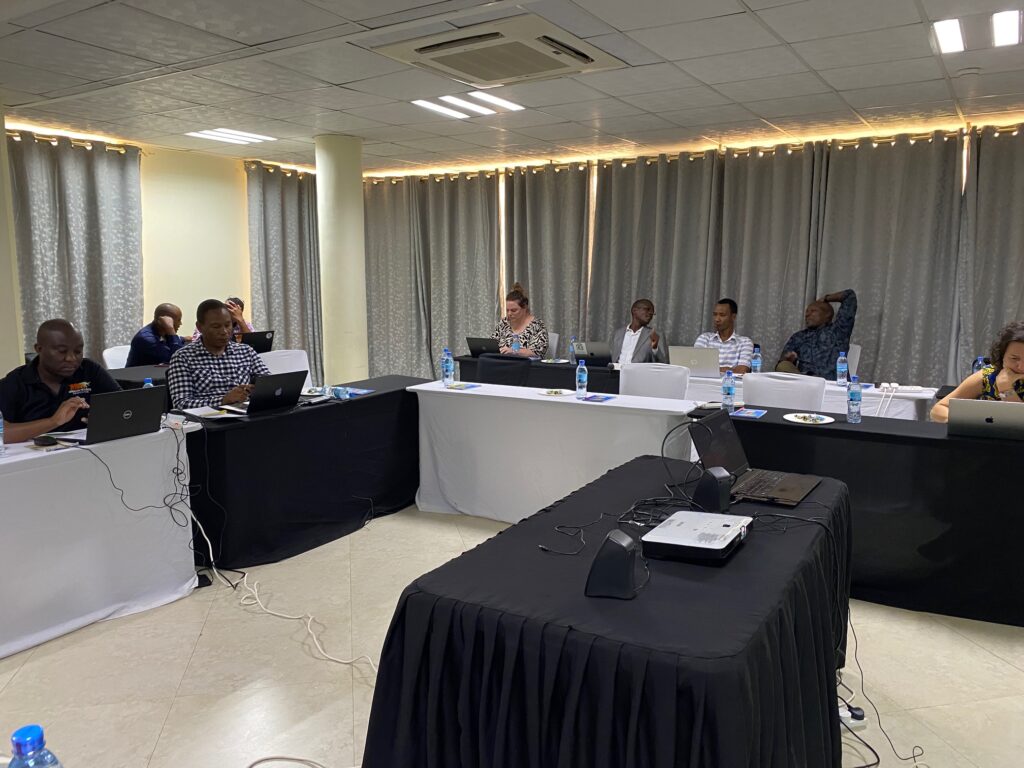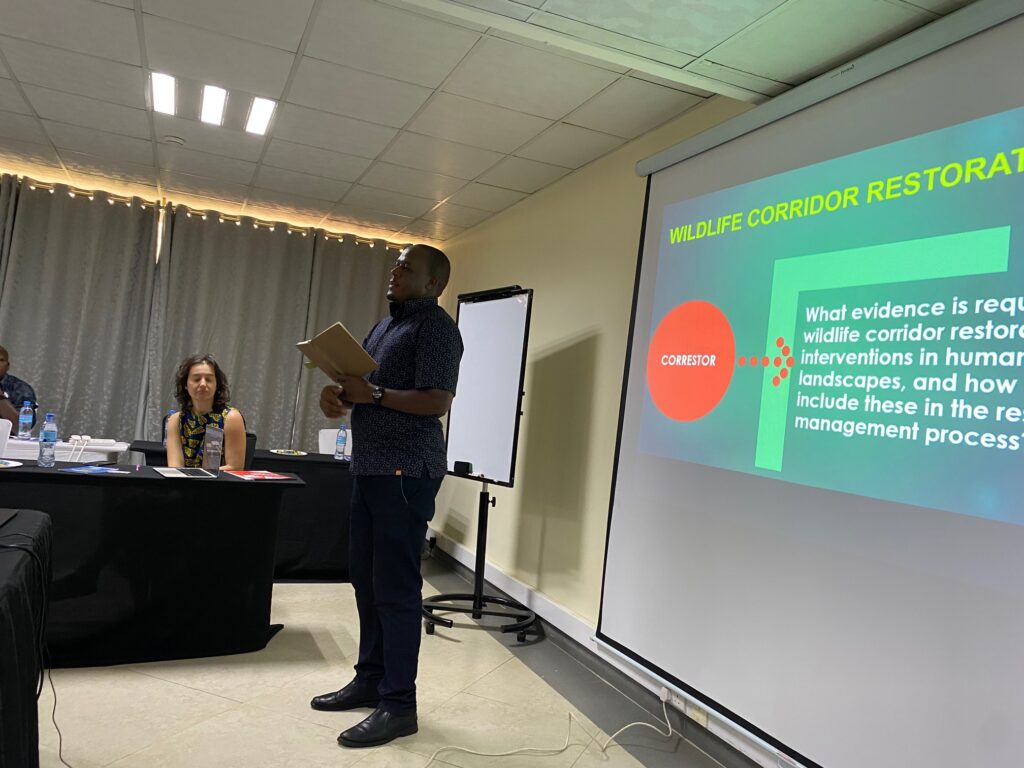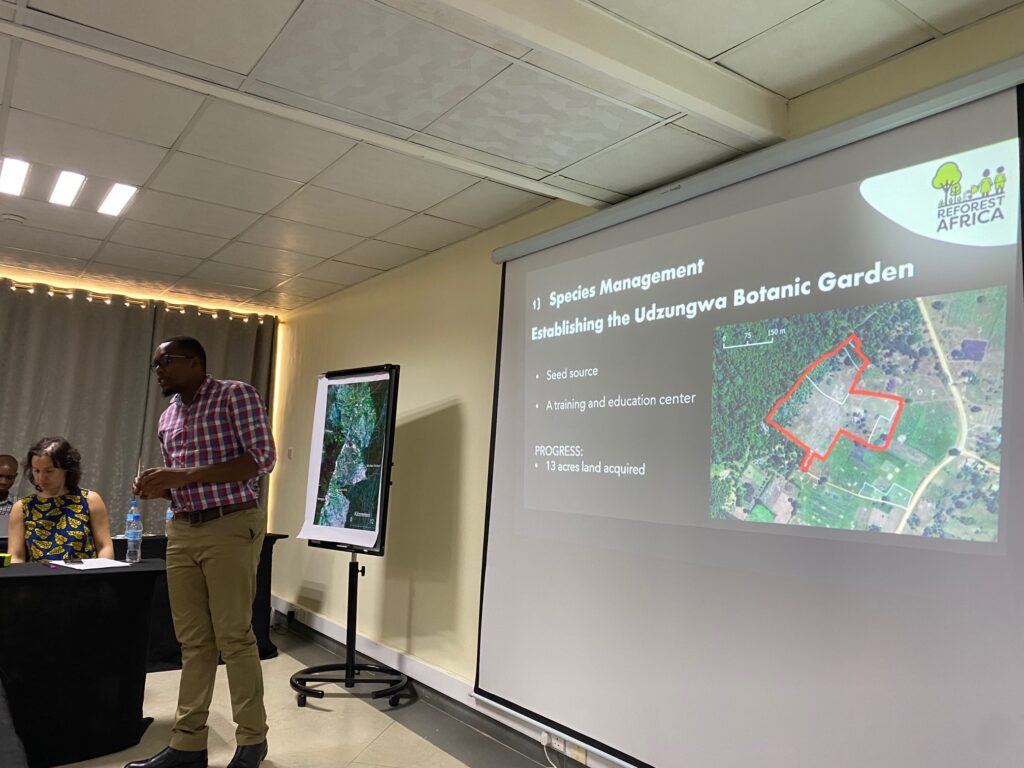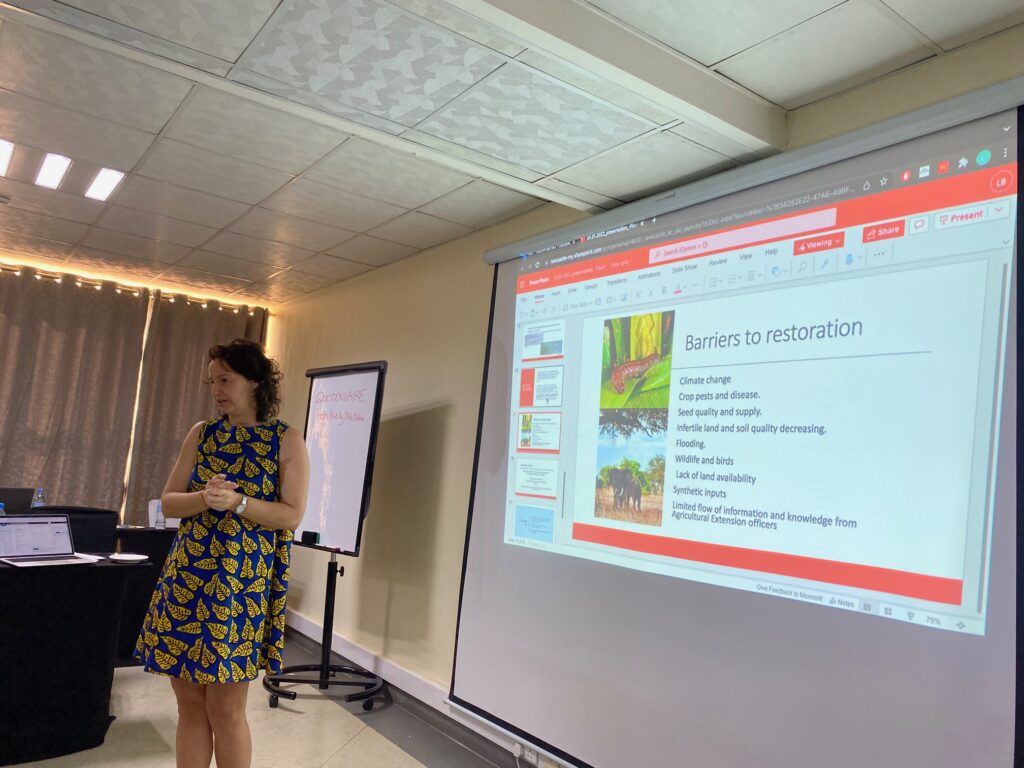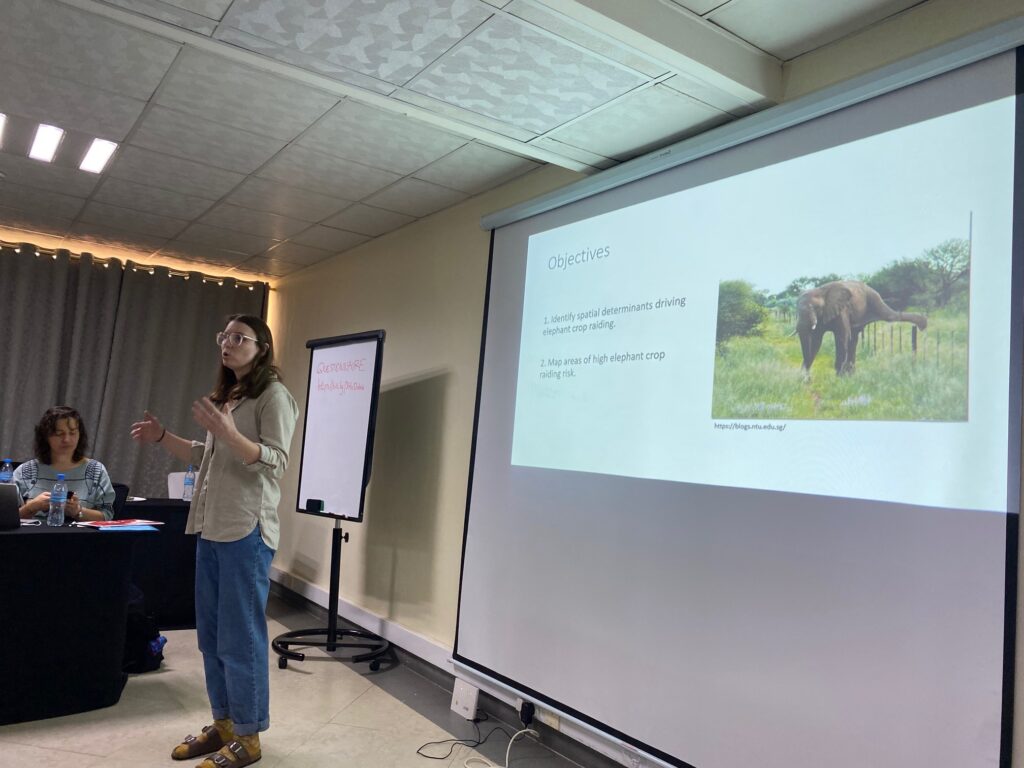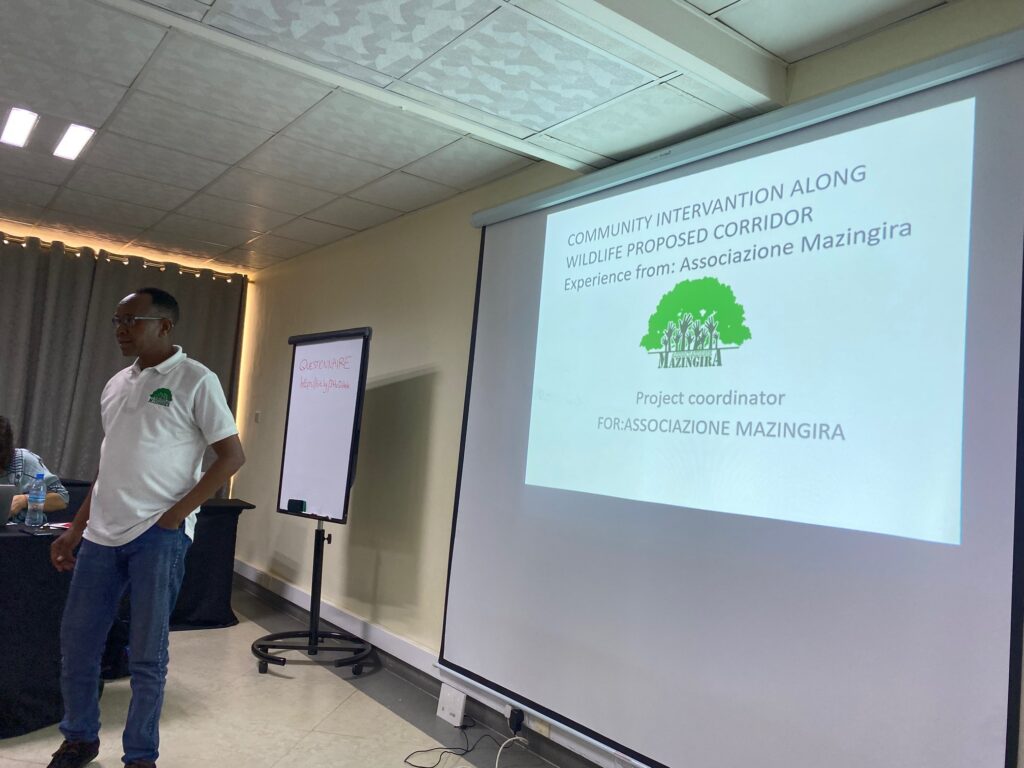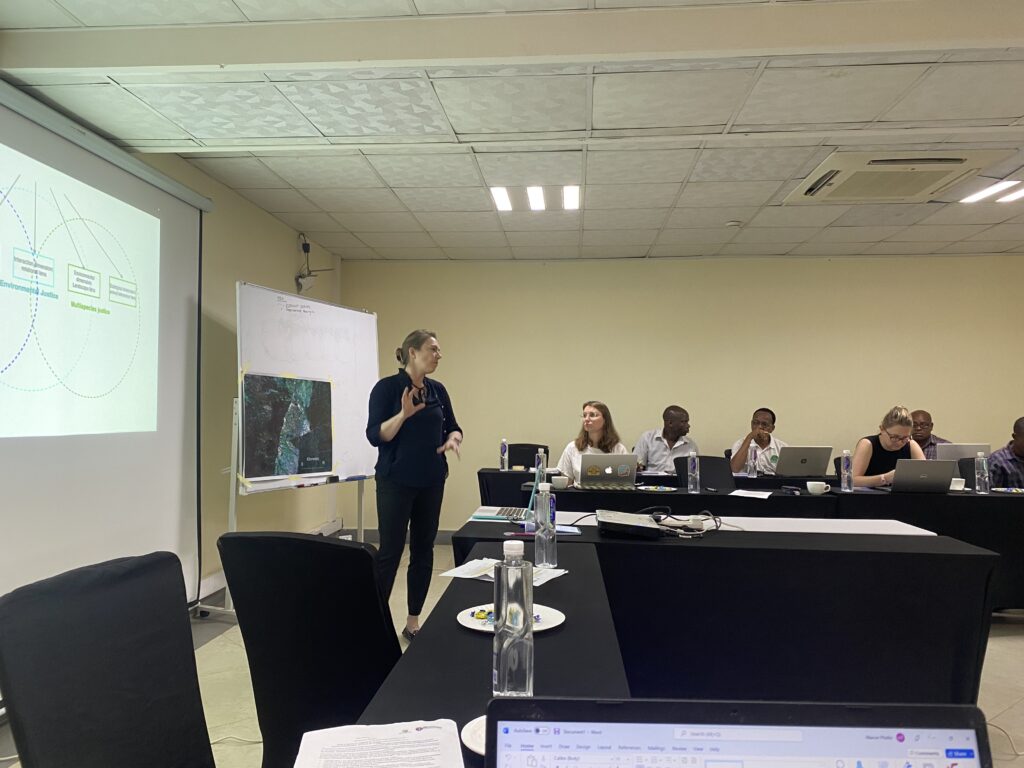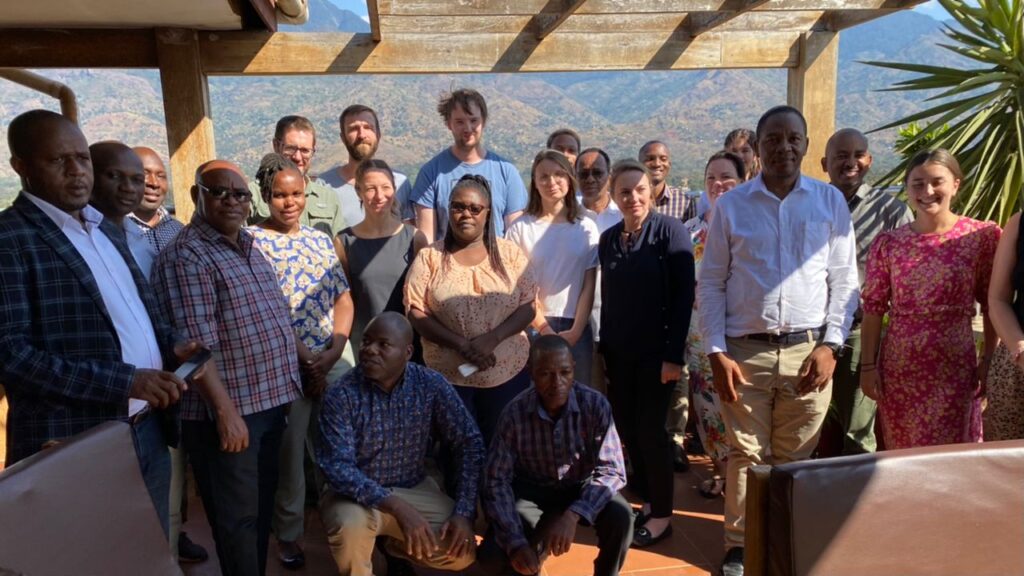Workshops were held in Morogoro, Tanzania to reach key actors with interest in the project. Actors attending the workshops included agribusiness, government departments (TANAPA, Sugarcane research institute), local NGOs in the conservation and restoration sector (Mwazingera Association, Reforest Africa and STEP) and the final workshop was able to invite farmer representatives. We also invited Tanzanian graduates, some of them who were employed as research assistants on projects in the landscape, and UK UG and PG students to join the workshop as observers and participants.
The project has been led by Dr Marion Pfeifer (Newcastle University, UK) and implemented with Co-Investigators in Tanzania and Australia and a range of partners in Tanzania outlined here: Science for Nature and People Partnership : Wildlife Corridor Restoration (snappartnership.net). The project is fully funded by the Science for People and Nature Partnership.
Workshop 3 – Model consolidation workshop. Morogoro – Tanzania. 01/02/2022 – 04/02/2022: Discuss data, restoration plans and priorities. Key outcomes synthesized here:
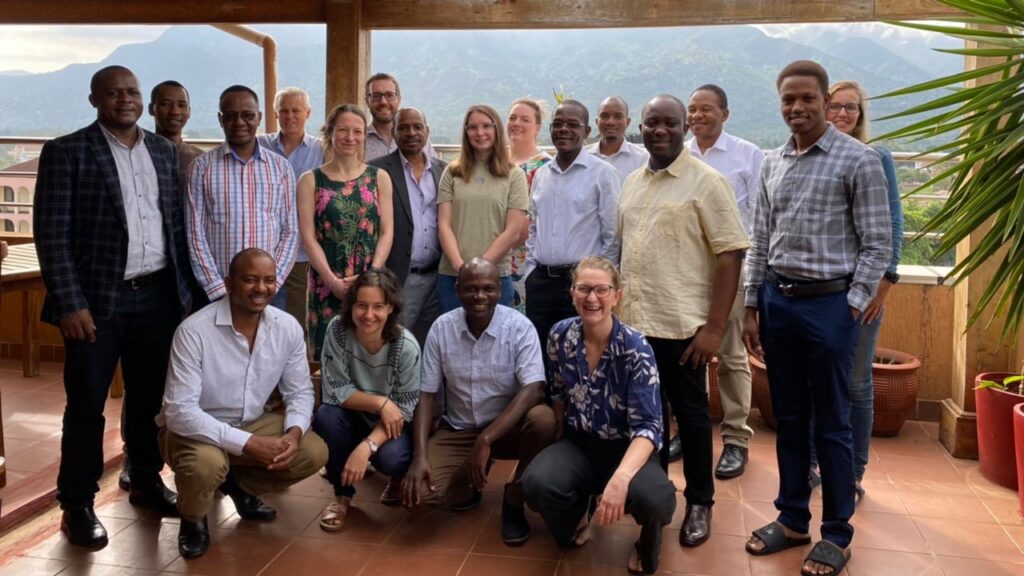
1.Explore the restoration activities planned in the Kilombero Valley, their alignment in space and time with ongoing wildlife corridor restoration
2.Explore the implications of restoration activities for biodiversity and wellbeing.
3.Compile evidence needs from decision-makers/government -> draft policy brief
Workshop 4, October 12th and 13th. Co-development and co-design in the restoration process workshop. Outcomes summarised here:
This workshop was the final workshop of the project. In this workshop, we aimed to build on the previous workshop outcomes and further evidence collected since February 2022 to now co-develop and co-design final restoration plans in the upper Kilombero Valley. Specifically, we worked through four agenda items:
- Agenda item 1: Co-development of a synthesis plan for collaborative action on ecological restoration activities in the landscape (focus on riparian zones, village forest reserves, and home gardens)
- Agenda item 2: Identification of capacity strengthening requirements to meet stakeholder needs (focus on approaches, funding and time lines)
- Agenda item 3: Co-design of a knowledge exchange platform on restoration activities in the landscape (structure, stakeholders, type of engagement activities, format of knowledge sharing activities, sustainability)
- Agenda item 4: Discussion of co-financing of restoration in the Kilombero Valley (who, how, what)

